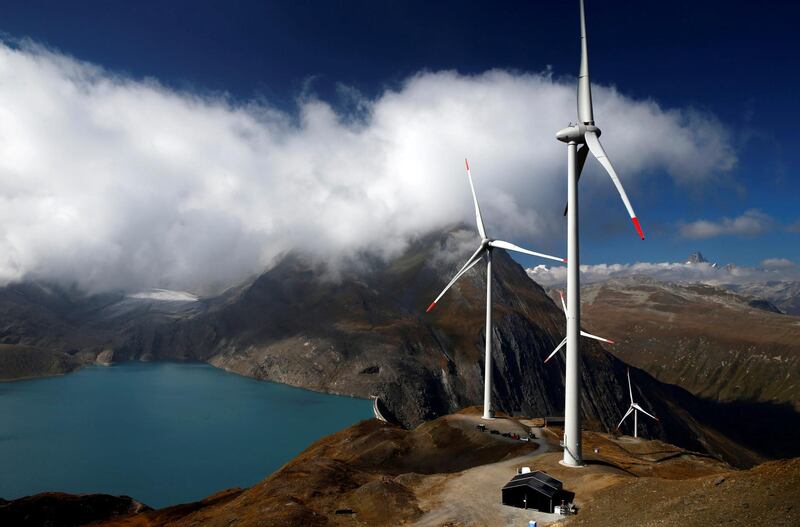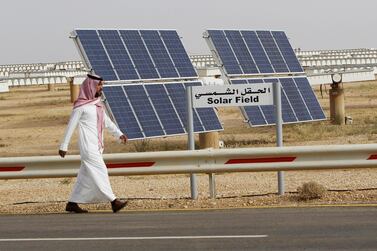Addressing climate change remains an imperative despite the progress made so far. The tendency to prioritise present day challenges over future ones has inevitably raised concerns that we are neglecting the next generation, a dilemma that is at times termed the “tragedy of the horizon”.
Covid-19 could be giving us a view of that horizon – both of the potential benefits of carbon abatement, renewable energy and other sustainable technologies, and of the likely consequences of inaction.
After all, the economic slowdown from the pandemic has provided us with a glimpse of a decarbonised industrial future – a world with cleaner skies, fewer and less polluting cars and wildlife reclaiming its natural habitat.
Equally, the pandemic has demonstrated the dangers of not being prepared for an uncertain future, with companies across the world scrambling to find measures to contain it.
As widespread as its impact has undoubtedly been, and as difficult as the rebuilding effort will certainly be, Covid-19 is ultimately a solvable problem.
Climate change, on the other hand, is an emergency from which we will not recover without far-reaching social and economic changes – a fact our leadership in the UAE has long understood.
We knew before the pandemic that substantially more investment was needed to decarbonise our economies sufficiently to limit the increase in global average temperature to 2 degrees Celsius above pre-industrial levels – in addition to the roughly $300 billion (Dh1.1 trillion) currently invested in renewable energies each year.
Covid-19 has laid bare the implications of failing to invest in a more secure future and it has confronted us with a simple choice – we attempt to delay the inevitable, or we redouble our efforts to realise viable solutions to the world’s sustainability challenges.
Masdar was established in 2006 to advance the development of such viable solutions and to prove that they could stand on their own commercially – an argument that is increasingly being won. As technological innovation makes it more cost efficient and versatile, renewable energy is finding its way into more products, services and solutions.
Clean power generation is also becoming more decentralised and increasingly dispatchable – and it is creating more high-value jobs.
The prospect of producing renewable energy in vast quantities cost competitively will potentially unlock other clean fuels, particularly hydrogen – a solution we have been monitoring very closely over the past decade for use in power generation, energy storage and transportation.
However, the shift to a lower-carbon economy will not necessarily be linear, nor will ground-breaking technologies bring it about.
The resilience of the global renewable energy sector owes much to the unwavering commitment of countries like the UAE, which have nurtured the regulatory and commercial conditions for sustainable technology solutions to thrive.
Ever since the financial downturn of 2008, policymakers have advocated “green” fiscal stimulus to help revitalise national economies. The call for public sector-led sustainable investment will inevitably grow louder as countries try to emerge from the Covid-19 crisis.
However, realising a truly sustainable future for all will depend as much on putting into effect lasting cultural change as it will on supportive government policymaking and fiscal innovation.
Over the past decade or so, we have seen a clear shift in public attitudes toward climate change here in the Middle East, particularly among the youth – who in many cases have gone from being indifferent towards climate change to being sustainability champions.
Today, these changes in the public mindset are influencing our business practices, social behaviour, consumption patterns and even our regulatory frameworks.
For example, the adoption of the UAE Guiding Principles on Sustainable Finance by stakeholders from across the financial community at Abu Dhabi Sustainability Week earlier this year clearly expressed the desire at every level of society for more concerted action on climate change.
Integrating sustainability is no longer an ethical consideration – it is becoming an obligation, for businesses and investors as well as for everyone else.
We must continue to build on that broad consensus in the UAE and in all nations around the world to ensure we meet our sustainability targets, and fulfil our obligations toward both present and future generations.
Today, as we look to recover from Covid-19, there is still a window of opportunity to act but it is narrower than ever: we cannot let it shut completely.
Mohamed Jameel Al Ramahi is chief executive of Masdar.






